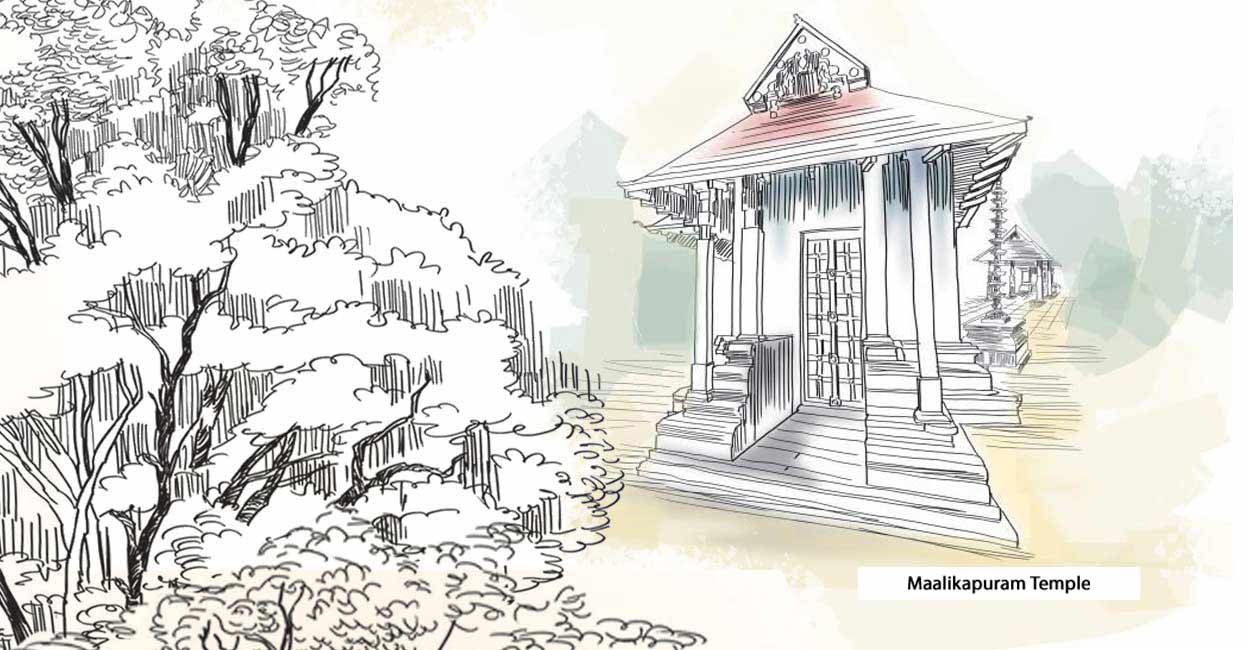It’s pure spiritual bliss to trek from Pampa to Sabarimala

Mail This Article
(Illustrations: Vishnu Vijayan. Inputs: M K Vinod Kumar, Nikhilraj, T K Rajappan)
Another season of the annual two-month long Sabarimala pilgrimage has started and the nippy winter air is punctuated by the chanting of ‘saranam ayyappa’. The nature is also decked up for the sacred months with sun rays creating magic in the verdant forest where the famed Sabarimala temple is situated on a hill. The trek from Pampa to the ‘sannidhanam’ of the temple, which is dedicated to Lord Ayyappa, is both exhilarating and transcendent.
Sacred trek through the lap of nature from Pampa
Pampa is a place of ‘triveni sangamam’, meaning a confluence of three rivers – Pampa, Kakki and Njunungar. Pilgrims walking through Kalaketti, Azhutha and Karimala, which is the traditional path to the hill shrine, and the devotees who come through Nilakkal by foot or in vehicles converge on the hollowed shores of the Pampa River.
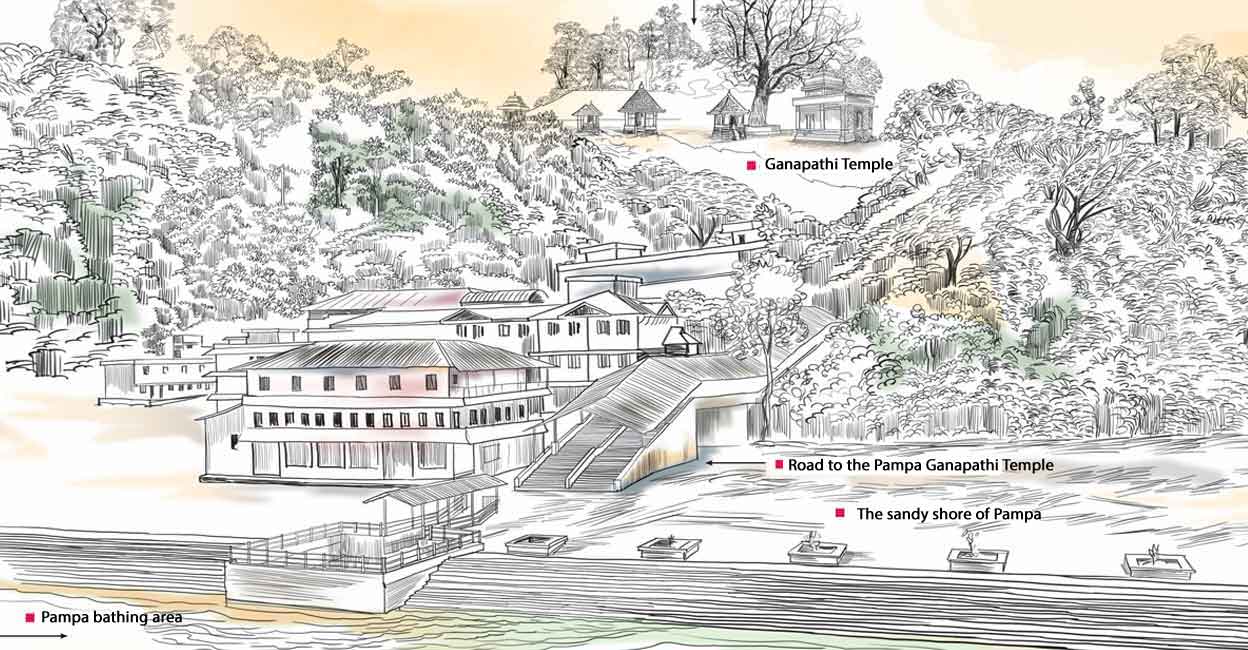
Prayers at Ganapathi Temple
The pilgrims offer their prayers at the Ganapathi Temple that has the pleasant smell of camphor and incense sticks. The devotees break coconuts amidst the chanting of ‘saranam ayappa’. After paying obeisance to Ganapathi to remove all obstacles on the way, the pilgrims clad in back attires start ascend to the Sabarimala temple.
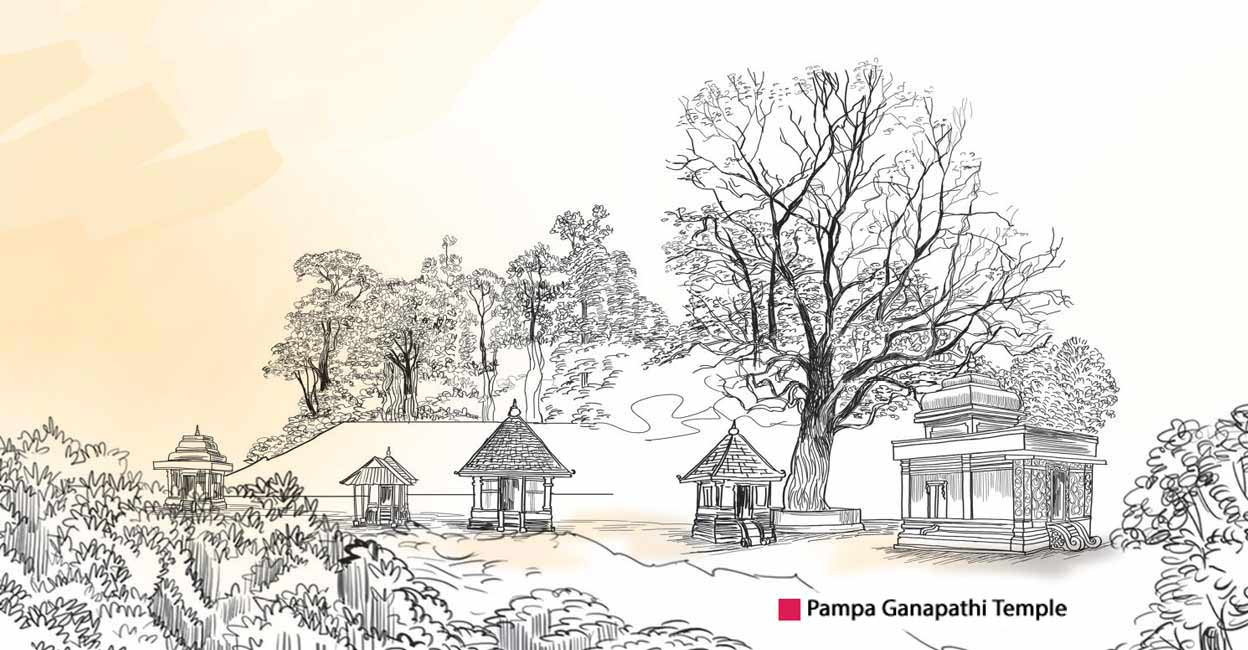
First a descend, then a steep climb
The steep climb starts after a descend from the Ganapathi temple. The Pandalam king’s seat is on the left side and a person representing the Pandalam dynasty will be present. After walking for a while, the pathway will branch out into two. The traditional route via Neelimala is on the left and on the right is the Swami Ayyappan Road. The road was laid by film producer Merryland Subramanian after his Malayalam film ‘Swami Ayyappan’ became a box office hit.
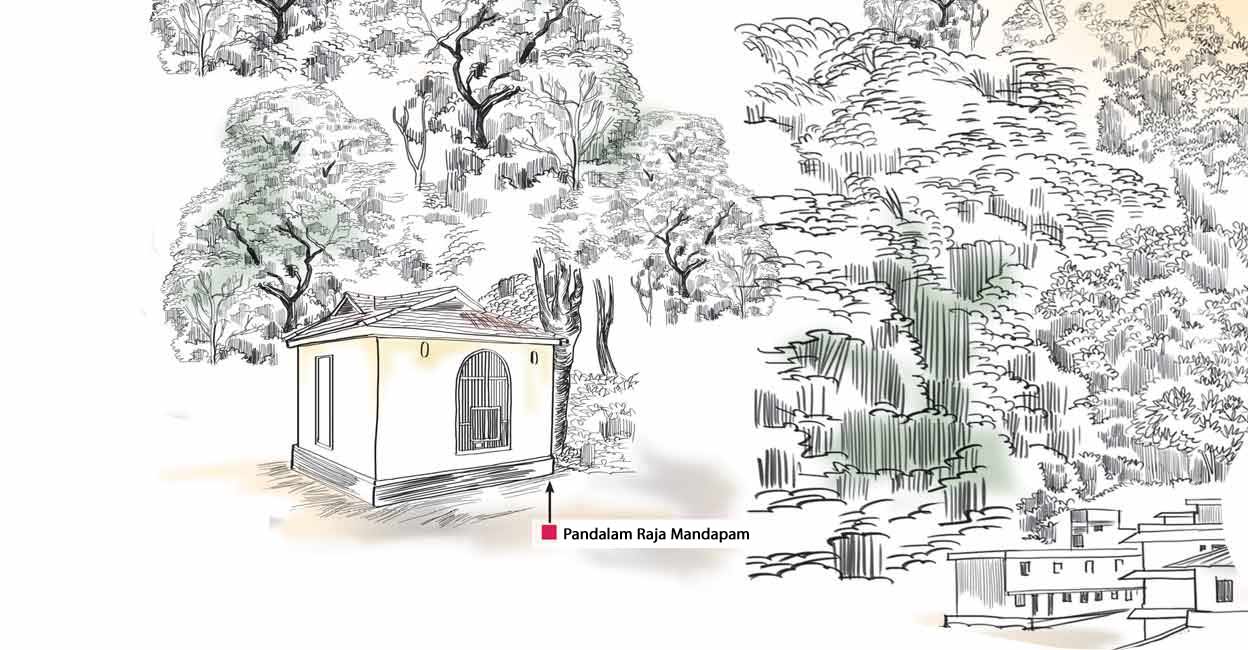
Be careful while trekking
Trekking through Neelimala and Appachimedu is hard and strenuous as the climb is steep. Make sure take to take rest at appropriate intervals while trekking up. This time around the Neelimala path is paved with stones so that an ambulance can pass through it in an emergency. The verdant forest is replete with huge rocks, tall trees that seem to touch the skies and lush greenery which is a treat for the eyes. The nip in the air, the cool mist and the milky white skies give company to pilgrims who trek the hard way to get the blessings of Lord Ayyappa.
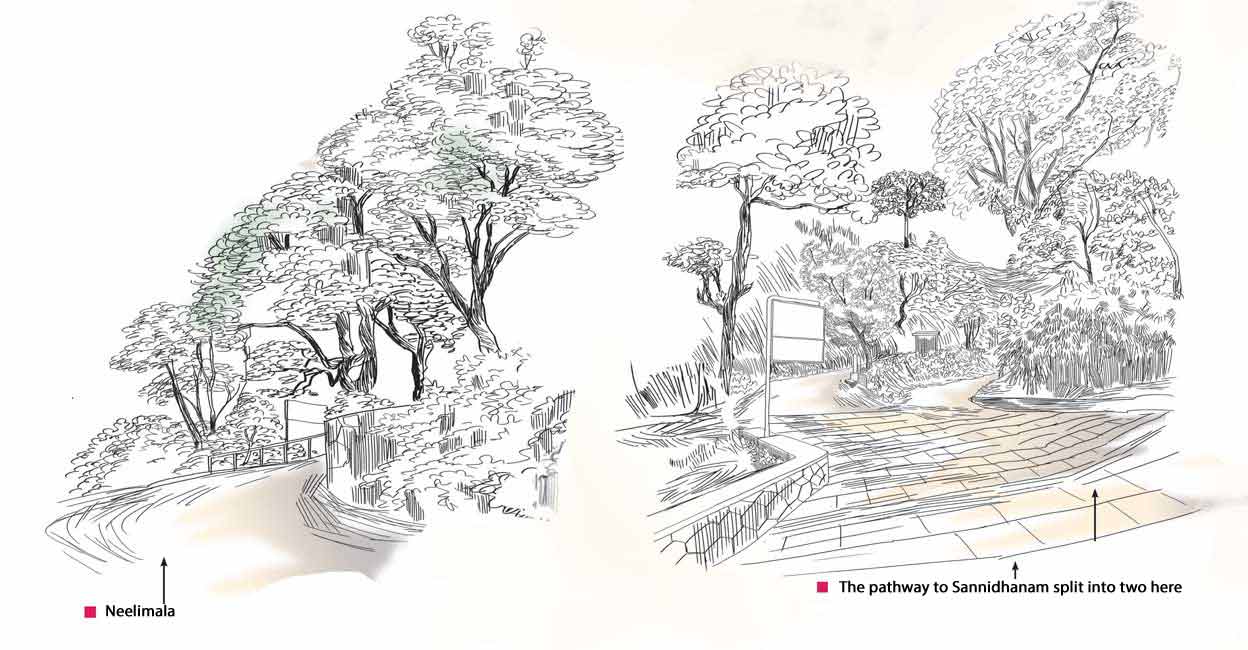
The rice ball offerings
Appachimedu is the spot where rice balls are offered to please the ‘bhoothaganangal’ (a group of Sastha’s lieutenants). The rice balls are thrown at two chasms – appachi and eppachi – by the pilgrims.
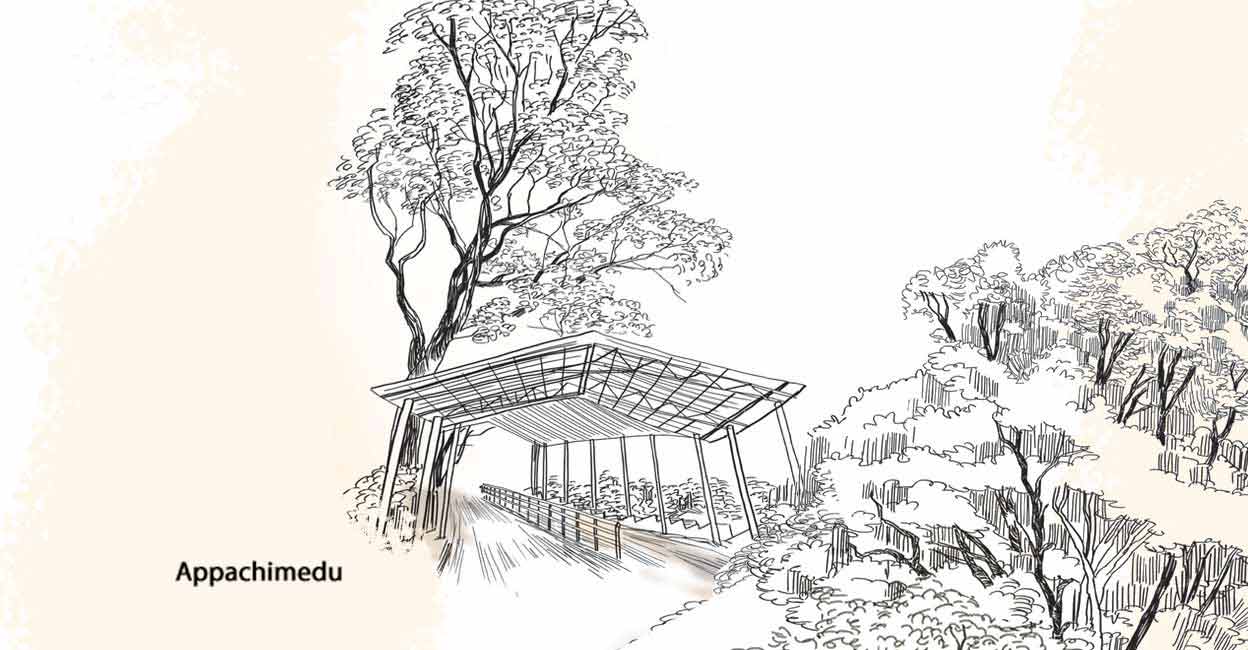
The holy ‘Sabari Peedam’
It is widely believed that ‘Sabari Peedam’ is the holy spot where Lord Ram gave ‘moksha’ to Sabari, an ascetic woman. ‘Vedivazhupadu’ (bursting of crackers as a ritual) is the main offering at ‘Sabari Peedam’.
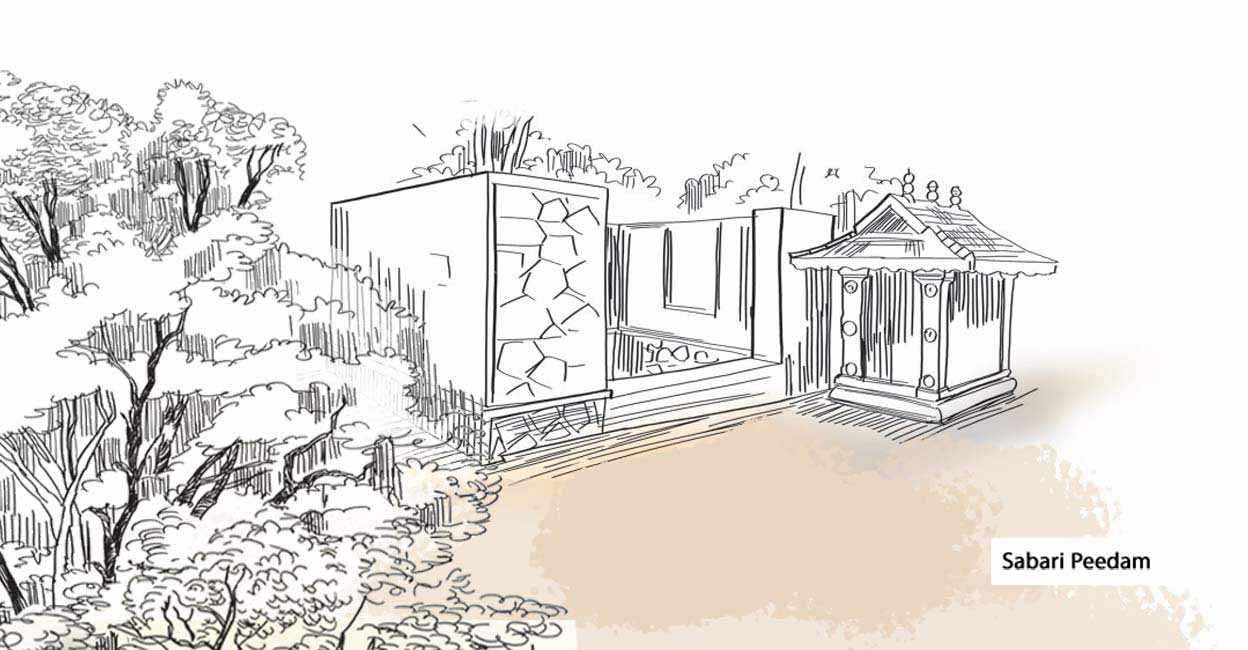
Lord Ayyappa is nigh
The Neelimala route and the Swami Ayyappan road converge at a spot near Sharamkuthi. Many pilgrims take a break from the energy-snapping trekking at this spot. After walking for a short while, the pathway forks into two – the traditional path touching Sharamkuthi and the Chandranandan Road. The Chandranandan Road was built by former Devaswom Board member P K Chandranandan with the honorarium he received.
It is said that ‘kanni ayyappas’, pilgrims going to Sabarimala for the time, should stick ‘sharams’ (arrows) at Sharamkuthi. After Marakootam, the trek to ‘sannidhanam’ is easy and the queue complex starts after passing Sharamkuthi. Both the paths reach the expansive ‘pandals’ (pavilions) that can accommodate thousands of people. After reaching here, the pilgrims will get a feeling that they are about to get Ayyappa ‘darshan’. A coconut should be taken from the ‘irumudikettu’, the holy pouch carried on head, to break it before the scaling the divine 18 steps to reach the sanctum sanctorum of the temple.
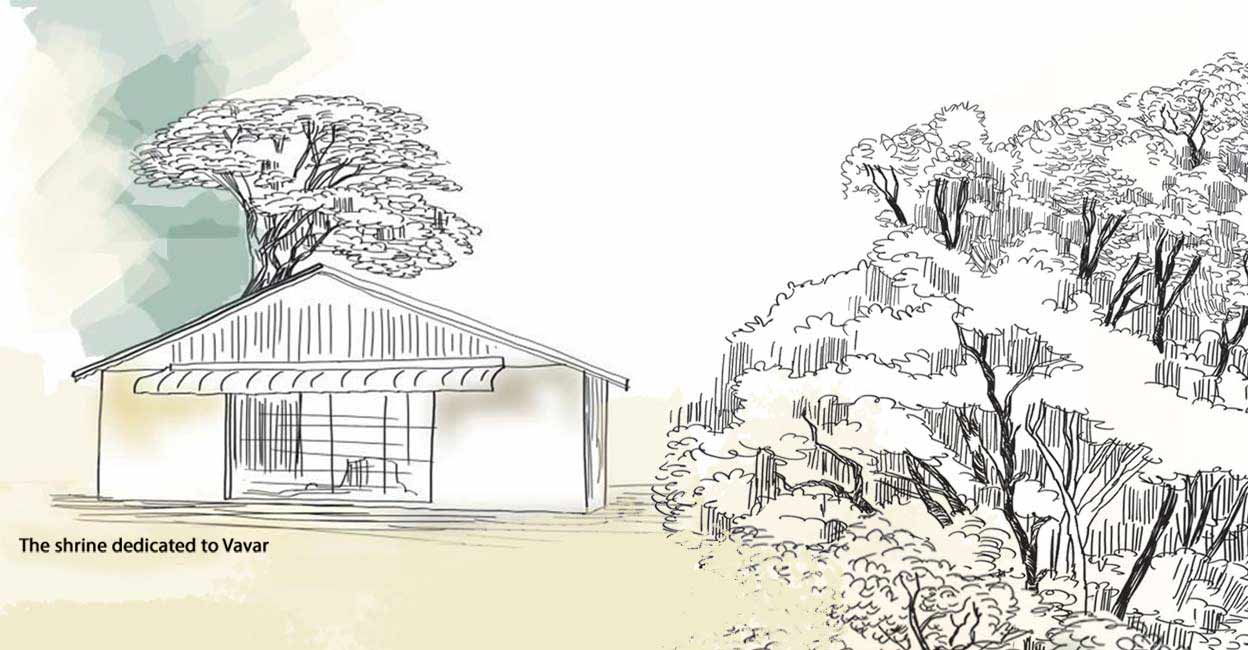
The 18 golden steps
The pilgrims are standing in long queues to scale the holy steps. The shrine dedicated to Vavar, believed to be a close associate of Lord Ayyappa, is situated in the vicinity. The devotees can see the ‘Thatvamasi’ mantra and also the golden flagstaff that literally stands tall.
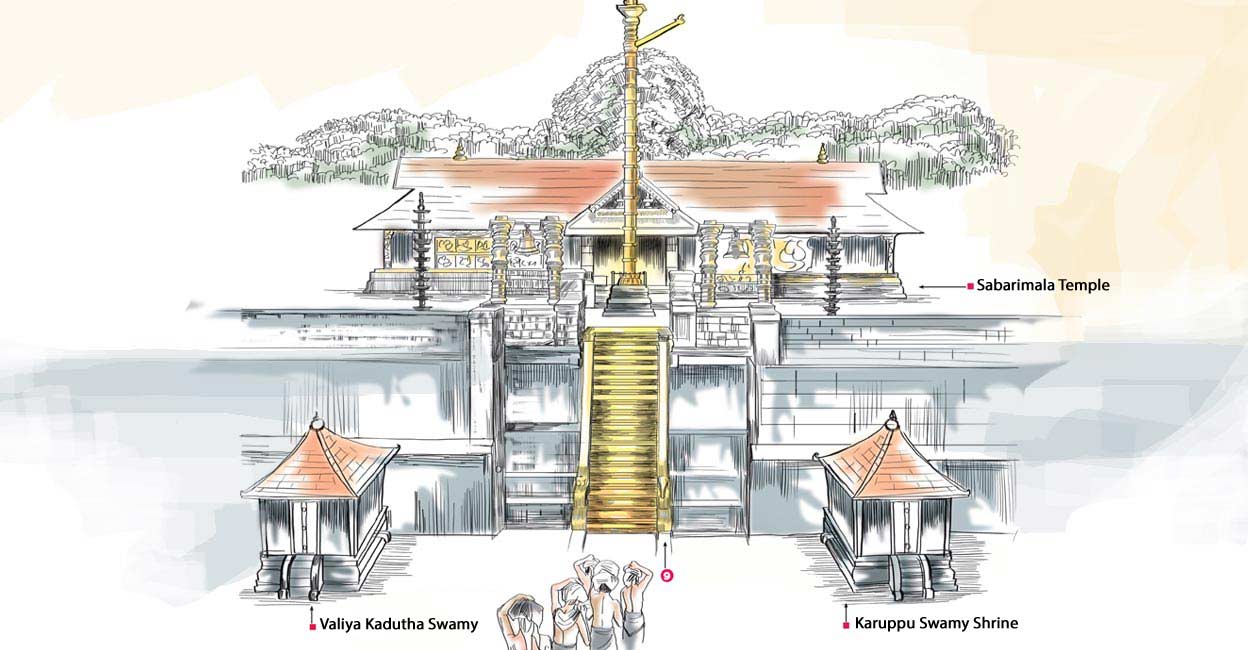
Ayyappa’s abode
The jet water that flows below the holy steps cools mind and body in equal measure. Entering the 18 golden steps provides a celestial feeling to every pilgrim. After climbing the holy steps, the pilgrims have to enter the over bridge from the left side of the golden flagstaff to move towards the sanctum sanctorum of the Sabarimala temple. Though pilgrims can get only a moment's glance of the Ayyappa deity, it is more than enough to get salvation in life. For that brief moment, there will be nothing around the pilgrim, just the blessings of Ayyappa and the ardent devotee.
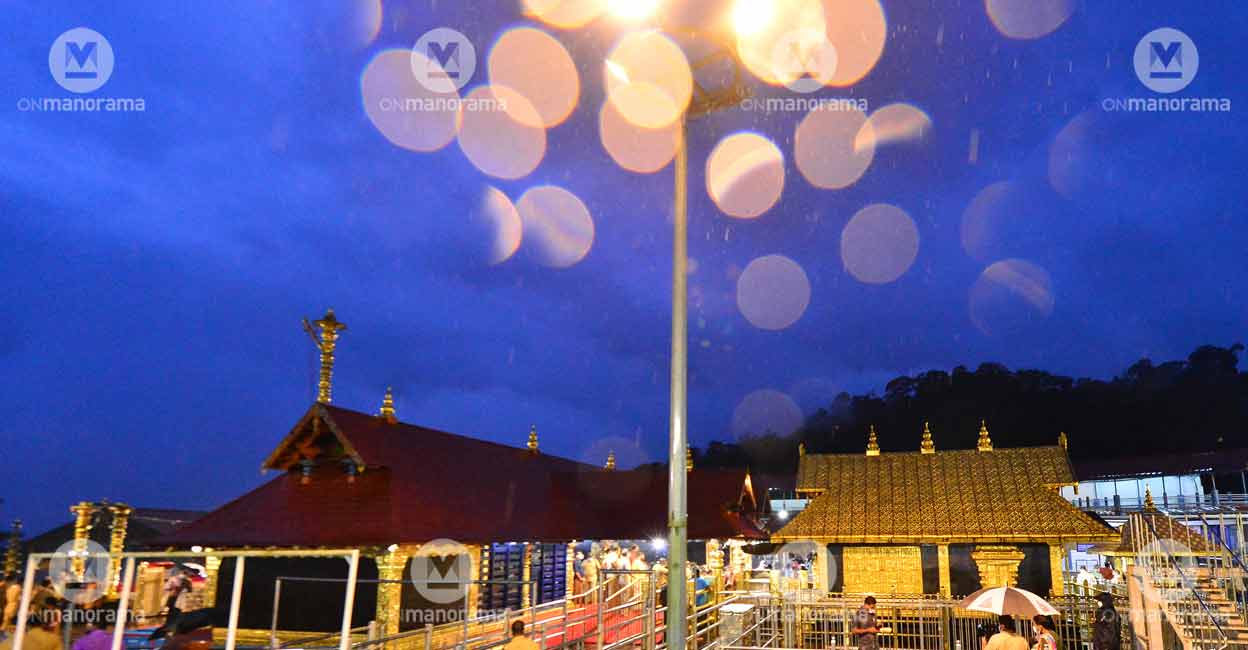
Trek down after offering prayers to ‘Maalikapurathamma’
The trek down from Sabarimala is after breaking the ghee coconut and ‘abhishekam’ (bathing of the deity), paying obeisance to ‘Maalikapurathamma’, seeking the blessings of ‘Nagarajavu’ (the serpent king), circumambulating the ‘mani mandapam’ and offering paying to ‘Navagraha’ (the nine heavenly bodies).
